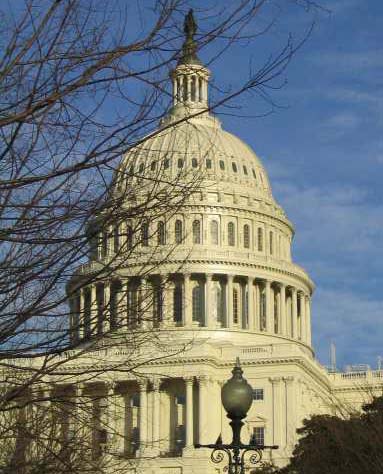 Posted by: Anshu Dixit
Posted by: Anshu Dixit•Companies Unblock Links to Free Credit Report Site. The major credit reporting agencies have unblocked links to the free credit report site, annualcreditreport.com. In December 2004, EPIC and other groups urged the Federal Trade Commission to order that the links be unblocked. Congressman Barney Frank (D-MA) wrote (pdf) to the credit industry trade group to summarize changes made at the site to make it more consumer friendly. The World Privacy Forum recommends in a report that individuals call to get their free credit report instead of using the web site to avoid privacy-invasive practices of the credit reporting agencies. For more information, see the EPIC Fair Credit Reporting Act Page. (Mar. 21)
•Coalition Urges FTC to Unblock Links to Free Credit Site. EPIC and five privacy and consumer groups have called upon the FTC to order credit reporting agencies to stop blocking web hyperlinks to a site that provides free credit reports. The letter argues that blocking links violates federal regulations, and that, "Whether intentional or not, every subtle and not so subtle web design tactic has been employed to make www.annualcreditreport.com difficult to find and use." EPIC has posted a webpage that circumvents the blocking. (Dec. 7, 2004)
•Free Credit Report Site Blocks Web Links. Nationwide credit reporting agencies are required under federal law to provide a free credit report to residents of western states online starting December 1, 2004. However, the credit reporting agencies have blocked links to the free site, citing bogus security concerns. By blocking outside links, the companies create a greater risk of phishing because consumers have to type in the URL, and the companies can steer consumers to their expensive, unnecessary credit monitoring services, avoiding their duty to provide free reports. To get your free report, paste the following URL into your browser: http://www.annualcreditreport.com. (Dec. 4, 2004)
Introduction
The Fair Credit Reporting Act (FCRA), Public Law No. 91-508, was enacted in 1970 to promote accuracy, fairness, and the privacy of personal information assembled by Credit Reporting Agencies (CRAs).
CRAs assemble reports on individuals for businesses, including credit card companies, banks, employers, landlords, and others. The FCRA provides important protections for credit reports, consumer investigatory reports, and employment background checks. The FCRA is a complex statute that has been significantly altered since 1970 by Congress and the courts. The Act's primary protection requires that CRAs follow "reasonable procedures" to protect the confidentiality, accuracy, and relevance of credit information. To do so, the FCRA establishes a framework of Fair Information Practices for personal information that include rights of data quality (right to access and correct), data security, use limitations, requirements for data destruction, notice, user participation (consent), and accountability.
The Federal Trade Commission (FTC) issues commentaries on the statute, but does not engage in rulemaking for the FCRA.
CRAs may also be referred to as "credit bureaus" or "consumer reporting agencies."





.jpg)
























 By: Mark Jewell
By: Mark Jewell




